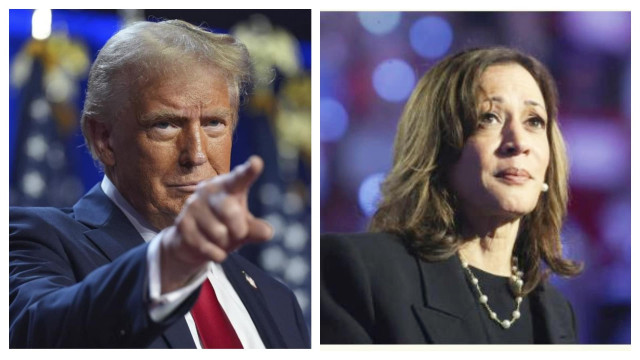Donald Trump defied the odds on Wednesday, reclaiming the presidency in one of the most dramatic comebacks in American political history. With a victory in Wisconsin, he secured 295 electoral votes, surpassing the 270 needed to clinch the presidency. This marks an extraordinary resurgence for the former president, who left office in 2021 under the cloud of two impeachments, felony convictions, and political isolation.
Trump’s return to the White House was made possible by key wins in swing states Michigan, Pennsylvania, and Wisconsin—collectively known as the “blue wall.” These states, crucial to his 2016 victory but lost in 2020, swung back to Trump, signalling a shift in voter sentiment.
Vice President Kamala Harris, who led the Democratic ticket, conceded defeat on Wednesday afternoon. Shortly afterwards, President Joe Biden called Trump, offering congratulations and inviting him to the White House to begin the transition process. Biden also reached out to Harris in a show of solidarity. Harris has been outspoken about Trump’s previous term, criticizing his leadership style and policies.
Foreign leaders joined in acknowledging Trump’s victory, with Israeli Prime Minister Benjamin Netanyahu and French President Emmanuel Macron among the first to offer their congratulations. The international community has had mixed reactions, with some expressing concerns about Trump’s approach to foreign policy, including a potential withdrawal from NATO.
Trump’s re-election defies precedent in more ways than one. At 78, he becomes the oldest person to assume the presidency and the first convicted felon to be elected. Earlier this year, a New York jury convicted Trump on 34 felony charges related to a hush-money payment scheme. Despite these legal challenges, he capitalized on the controversies to galvanize his supporters, presenting himself as a victim of government overreach. His “law and order” campaign resonated with voters, who saw him as a protector against perceived threats to their freedoms.
Despite her groundbreaking candidacy as the first woman of colour to lead a major party ticket, Kamala Harris struggled to overcome the challenges of a compressed campaign timeline and public dissatisfaction with the Biden administration. Harris faced relentless attacks, with Trump often targeting her competency and leadership. However, her campaign brought essential issues, such as local manufacturing and middle-class support, to the forefront.
Harris supporters gathered at Howard University on election night, holding onto the hope of a victory that never materialized. Her promise of unity ultimately fell short against Trump’s powerful narrative of strength and defiance.
Trump’s second term promises to be vastly different from his first. With a Republican-controlled Senate and a weakened Democratic opposition, Trump has outlined plans for a sweeping transformation of the federal government. His agenda includes launching the largest deportation effort in U.S. history, expanding tariffs to promote economic nationalism, and redefining U.S. foreign policy with a focus on self-interest.
Throughout his campaign, Trump leaned heavily on his signature rhetoric of strength and defiance. He framed himself as a protector of the American people, promising to restore order and justice in a chaotic world. Trump’s hypermasculine persona struck a chord with many voters, particularly men, who resonated with his warnings of an apocalyptic future under Democratic leadership.
The 2024 election season was one of the most contentious in U.S. history. Trump faced a barrage of legal battles, including additional criminal charges in Georgia related to election interference and a federal case over his handling of classified documents. Despite these obstacles, Trump secured his party’s nomination without participating in a single primary debate. This dynamic revealed the deep divide within the Republican Party and the nation as a whole.
Trump’s victory underscores a deep divide within the United States. As he prepares to re-enter the White House, the nation faces profound questions about the future of its democracy, its role on the global stage, and its ability to heal internal divisions. Whether this transformation leads to prosperity or turmoil remains to be seen, but one thing is clear: Trump’s influence on the political landscape is as powerful as ever.




















